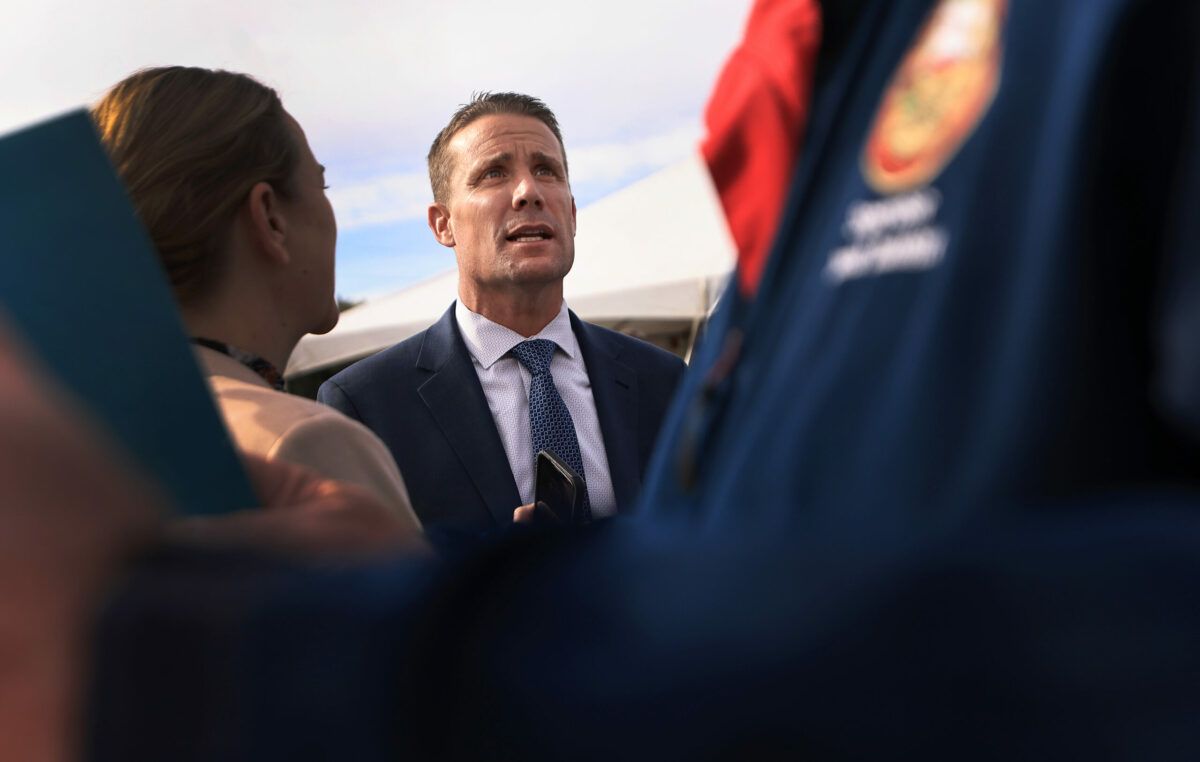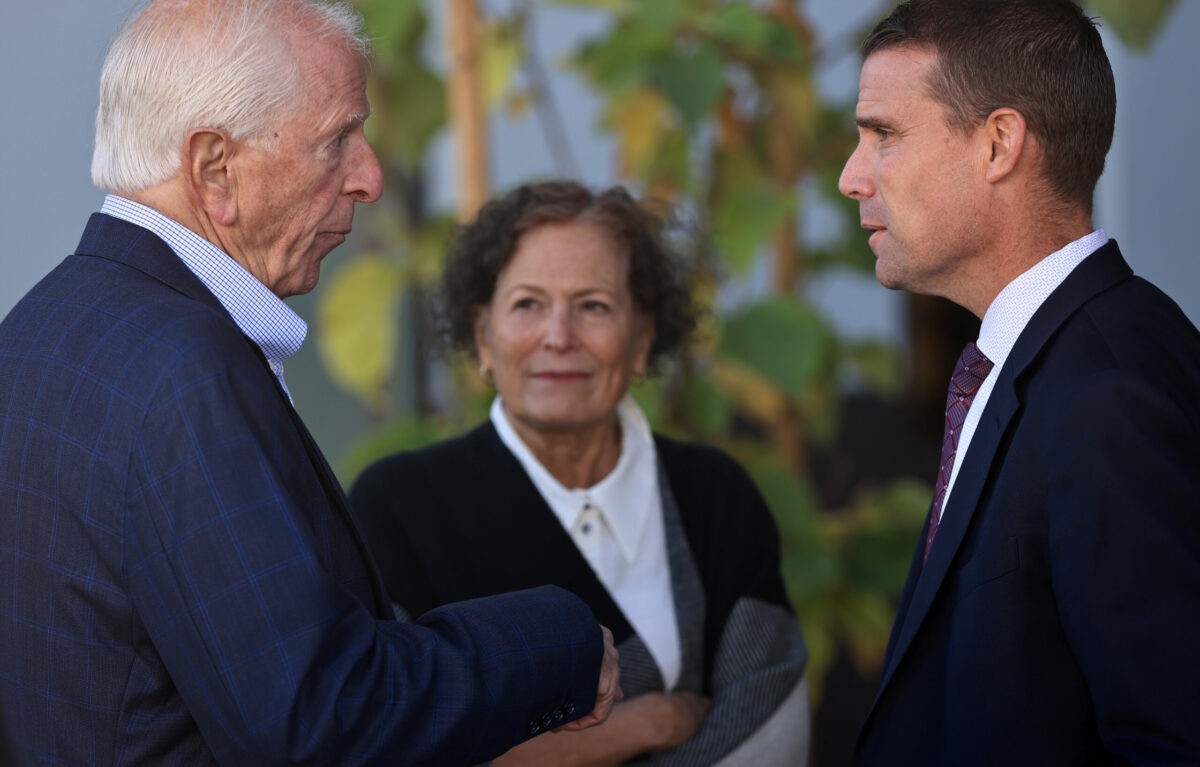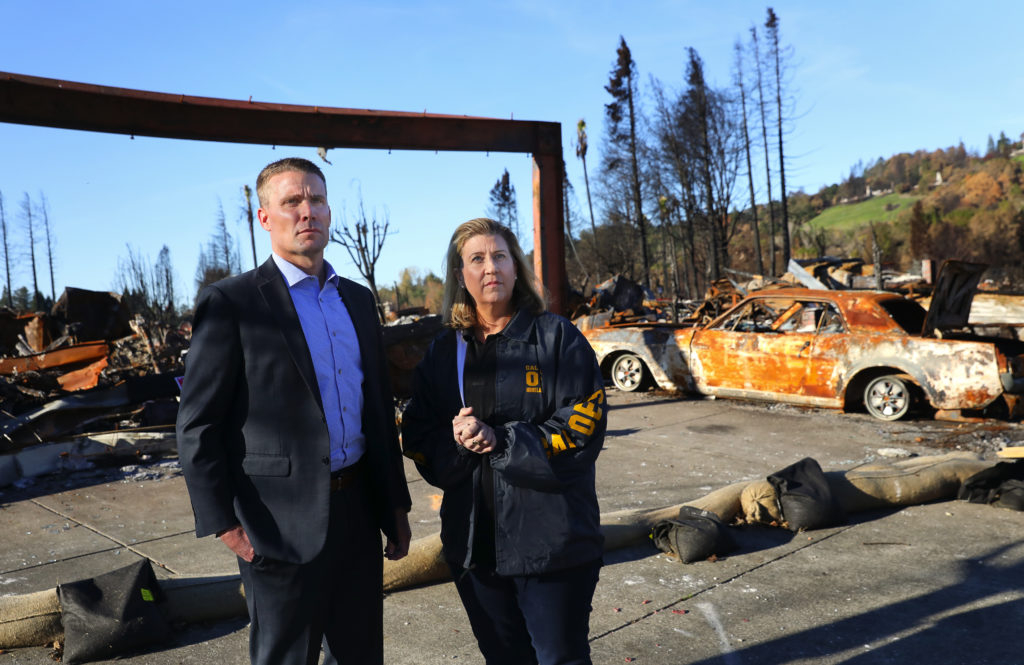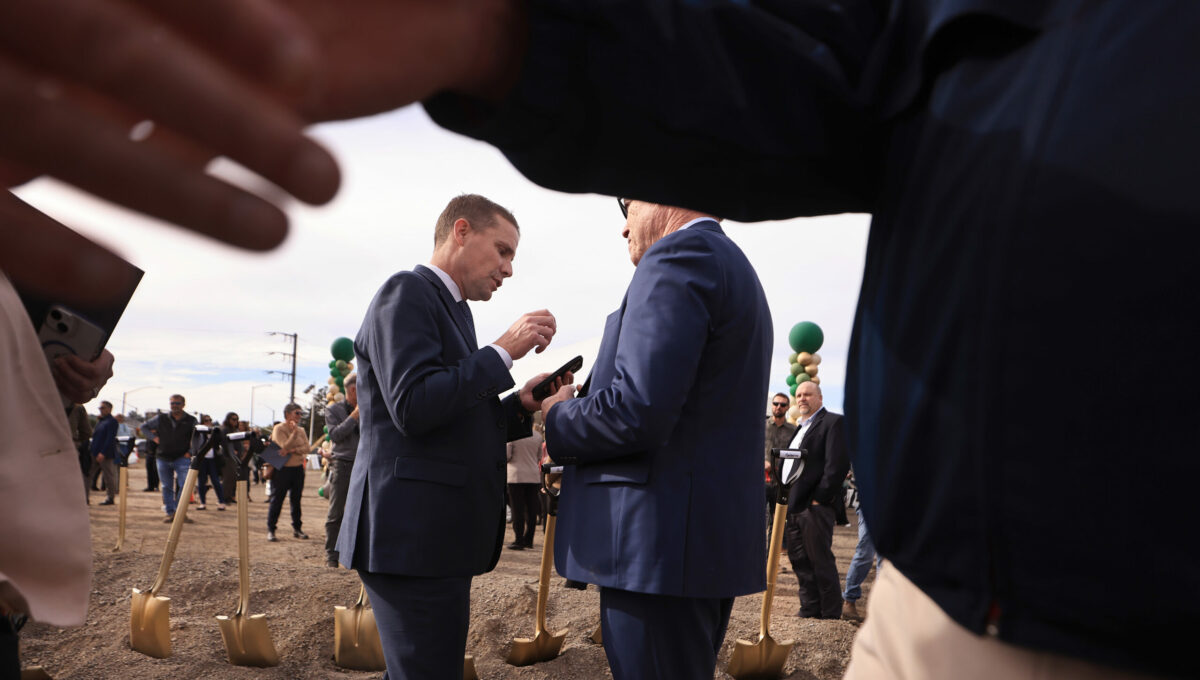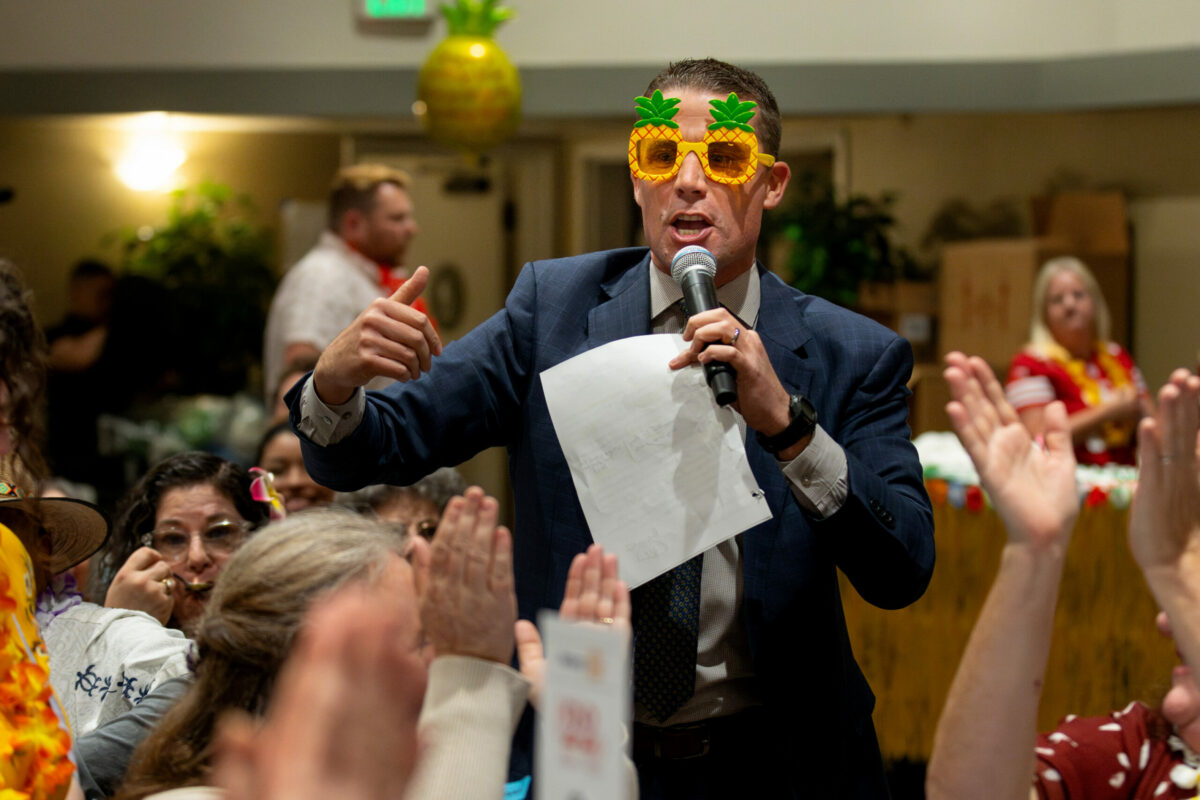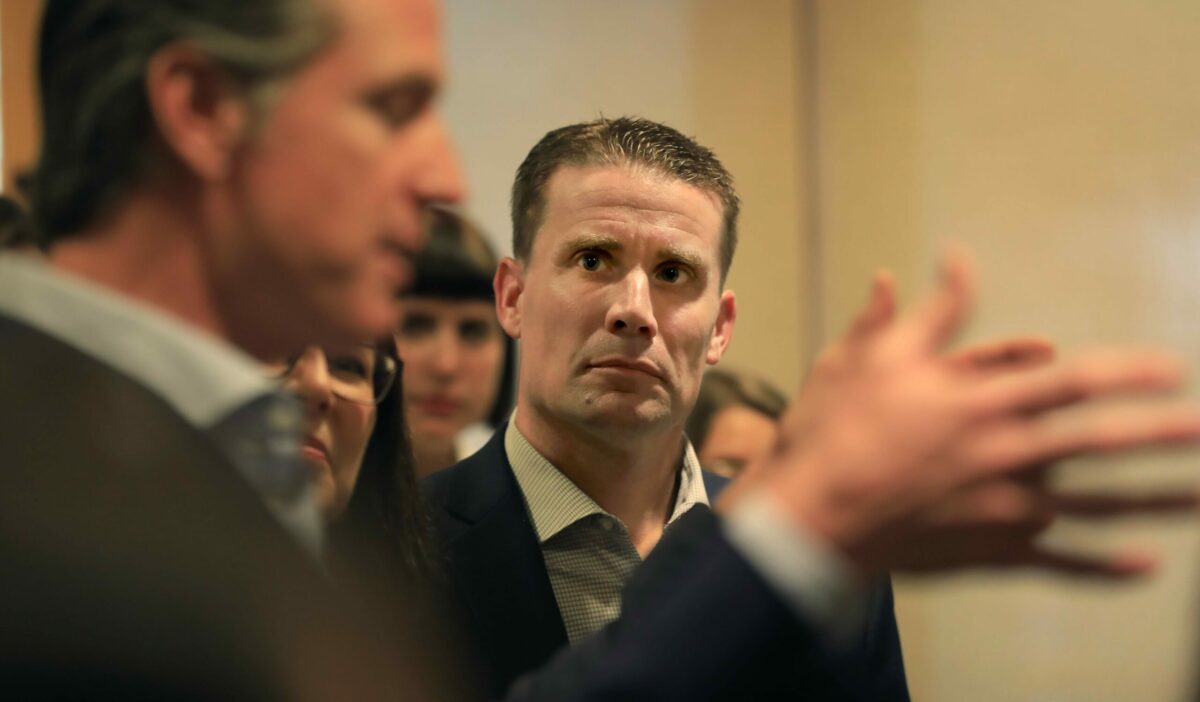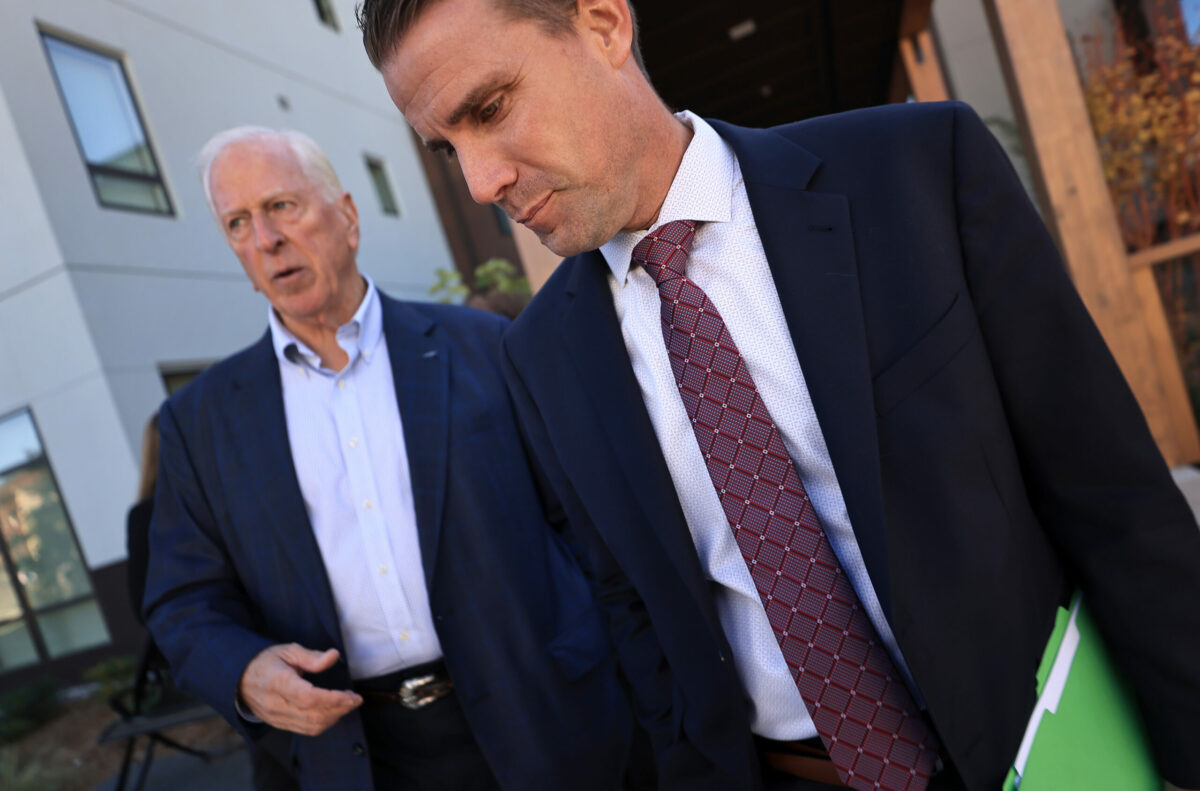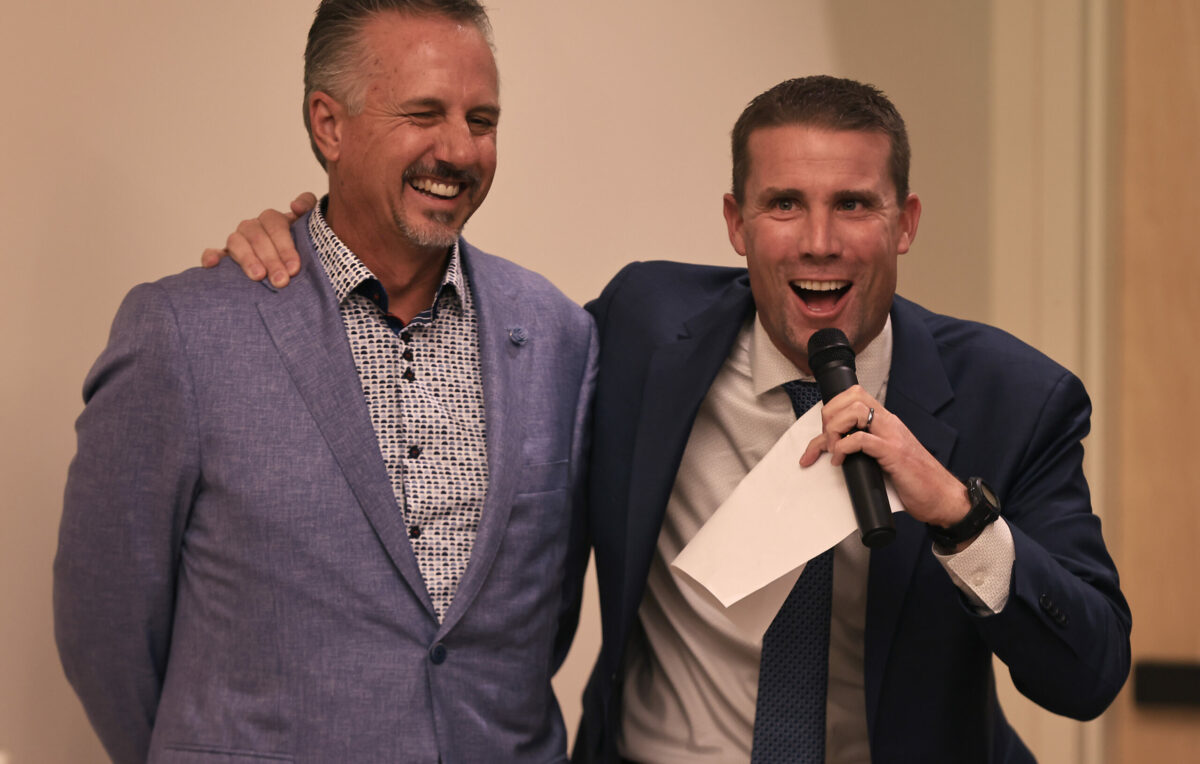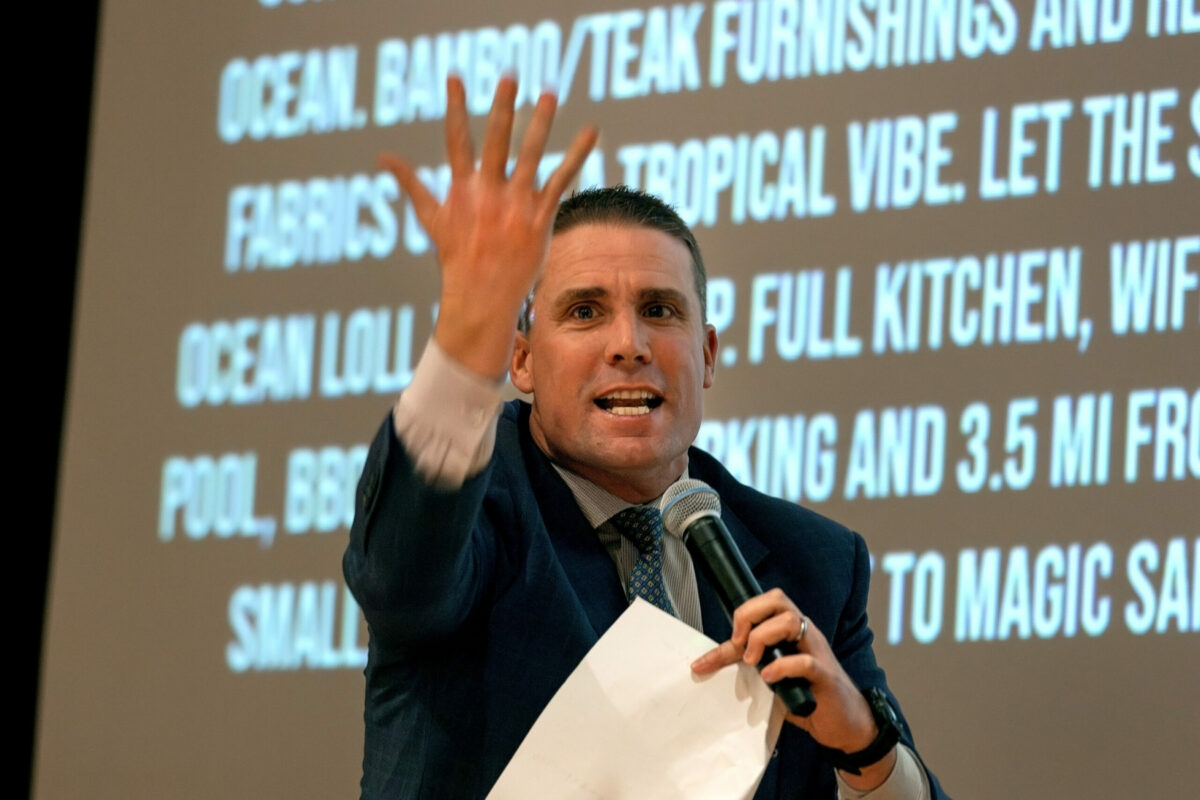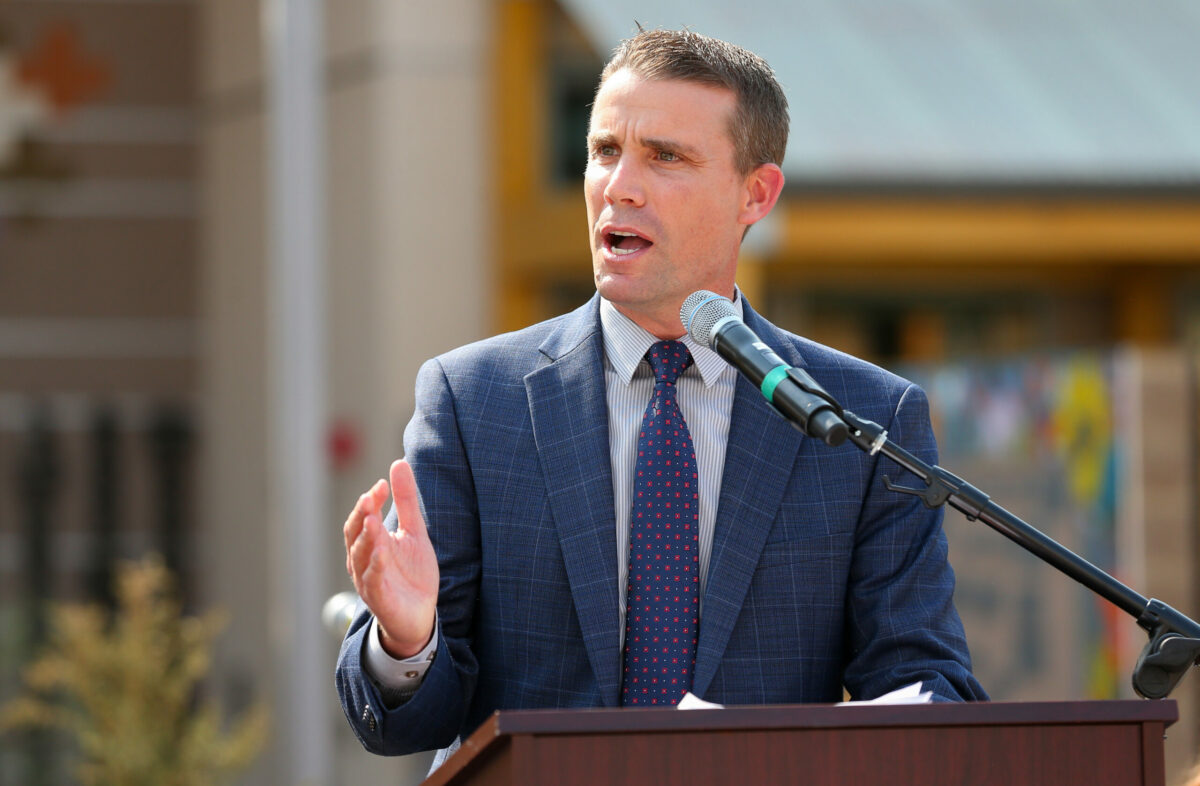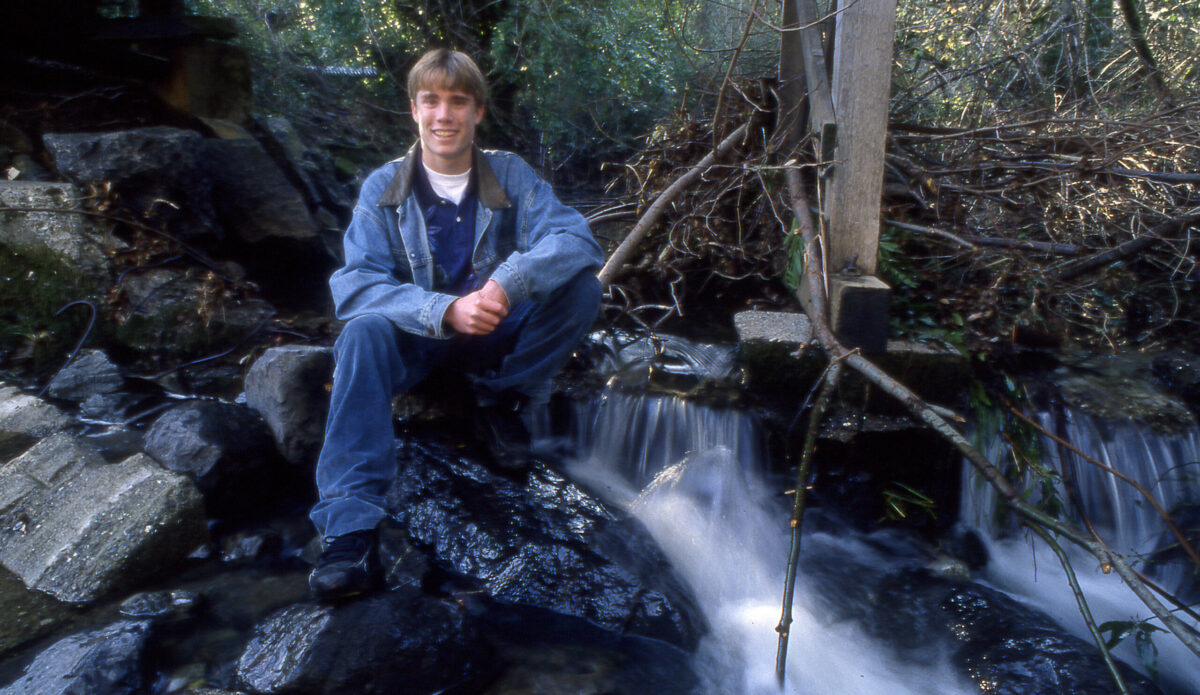Mike McGuire is standing in a choir room at Ukiah High School, pushing to high school student government members the presently disputed belief that the political process can, does, and will improve the lives of everyday people. The state senator from Sonoma County also trades fist bumps and jokes with the young student leaders.
“Am I right, party people?” he says to punctuate his points. He greets each tardy student, despite their best efforts to slink in unnoticed. “Hey! Come on in. Nice to see you. I’m Mike,” he says. They nod and slip into the closest empty chair.
McGuire was once one of those students during his own time at Healdsburg High, where he graduated as student body president in 1997. That was just a year before he stormed into Sonoma County politics, winning a seat on the Healdsburg school board at age 19 and then rising along an unbroken line from city council member to county supervisor, state senator, Senate majority leader, and, as of Monday, president of the California state Senate.
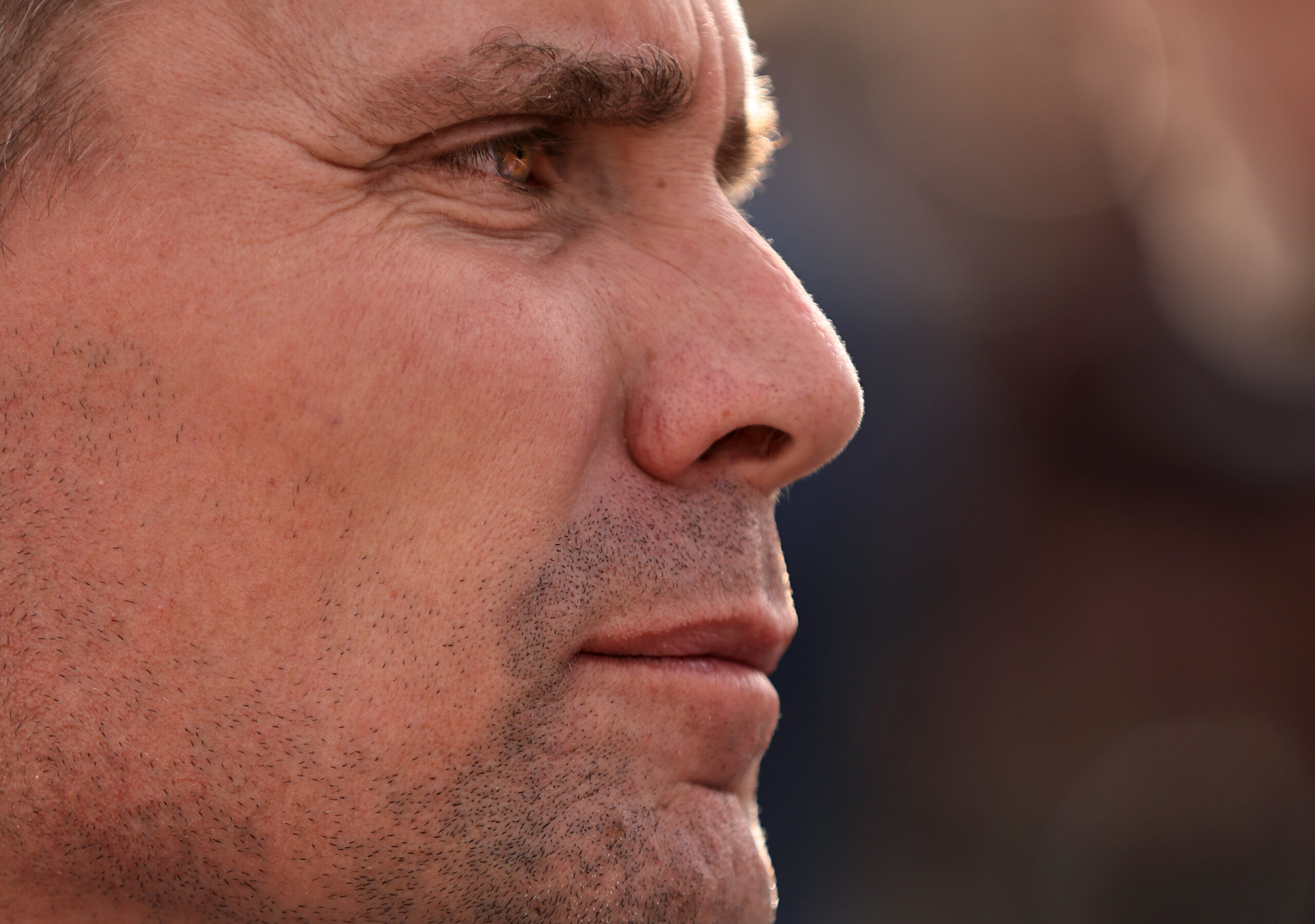
McGuire this week takes over as Senate leader in a Legislature that governs the nation’s most populated state and the world’s fifth largest economy. In order of succession, he will be third in line behind Gov. Gavin Newsom, and one of the few lawmakers in the room during the biggest negotiations of the new legislative session. He is the first person from north of Marin County to hold the position in 147 years. And he is only 44 years old.
“Look,” he says, “I will state the obvious. I’m probably one of the most unlikely individuals in the state to be assuming this role.” But the political prodigy from Healdsburg has been preparing for this moment most of his life.
First elected to the Senate in 2014, McGuire will lead a Legislature confronting a more than $22 billion dollar budget deficit, vexing rates of homelessness, and a housing affordability crisis. Though last winter eased drought concerns, more severe wildfire seasons and water issues driven by climate change lurk around the corner. Substance abuse and mental health woes and their attendant public safety concerns have put California cities in the crosshairs of Republicans nationwide, who seek to use struggling liberal bastions as national campaign fodder. And McGuire will be at the table with a governor who one day wants to be president, not to mention plenty of other state leaders who want to be the next governor.
Because of term limits, McGuire himself faces the end of his time in the Legislature in 2026 and must consider what comes next — even as he reaches this new career peak. He’s dominated every race he’s entered over the past two decades but will face far stiffer competition from fellow Democrats if he makes a run for statewide office. In preparation for the new leadership role, he’s recently been taking meetings that offer the kind of exposure and connections that anyone needs to rise in a state of 22 million voters — 35 times the number in his North Coast district, which runs from Marin County to the Oregon border.
McGuire has carved out a reputation in his district as the ever-ready emcee at public events and charity auctions, rattling off lots and hollering at bidders who are more often than not his constituents. At the moment, however, he’s making inroads with the high schoolers in Ukiah. After a half hour of policy talk and answering student questions, he urges the kids out of their seats, cajoling them into dance moves he leads. There is pushing the shopping cart (in McGuire’s version it is a wheelbarrow), plucking a pear off the tree — all performed without any music.
Remarkably, the high schoolers are into it. They surround him and join in. So on this morning in late November, California’s next state Senate president is wholly absorbed in stomping his feet leading an impromptu dance troupe of teenagers: “Can I get a ‘heck to the yeah?’ Come on everybody, let’s roll, come on party people, let’s roll. We’re going with the wheelbarrow. Everybody stop. Look at that pear tree. Grab that pear, put it in there. How about that?”
How about that, indeed.
Making inroads
High schoolers, of course, are new voters, or soon to be. But McGuire’s stops on campus also stem from a deeply rooted belief in education, and especially, the value of public schools. They are, he says, “the great equalizer.”
His home life growing up in Sonoma County, he tells people often, was not always easy. In Ukiah, he tells the students there was a “pretty dang bad divorce” when he was young. He was raised by his mother, who worked as a bank teller for 21 years, and his grandmother, a farmer whose financial support kept the family out of poverty.
Only in rare moments does he yield to delving deeper into this back story in public. More often, he is relentlessly on message, combing through notes he crams into yellow legal pads and file folders. Flip the page on the yellow pad — new issue to tackle, new resolution to seek. If thorny policy questions are his wheelhouse, ringmaster at public events his jam, then his own biography is more of a footnote. It runs all of 144 words on his Senate website.
And many of those words are devoted to the women in his life: his mother, Sherry, his grandmother, Martha, and his wife Erika, a public school principal in Healdsburg. The couple and their young son live in Geyserville, with a flock of chickens, including one named Martha for his grandmother.
When asked about his upbringing, McGuire signals his father was not around much. “I haven’t had a lot of great male role models in my life and my family,” he says. He was a poor student who, when he started at Santa Rosa Junior College, was still reading at a middle school level and battling through pre-algebra, he says. At Healdsburg High, he was no good as a football player and wound up the school mascot. A photograph in his senior yearbook captures him flashing a wide, toothy grin in a black wig with a colorful tie around his neck. “A typical look from Mike McGuire,” reads the caption. “It was a really long four years,” McGuire quips.
But he loved public school, a place where a kid whose family had no money could operate on an equal footing. Winning over others on campus is good practice for the rigors of political campaigning, and McGuire impressed. The same senior yearbook shows his classmates voted McGuire “most likely to become president.”
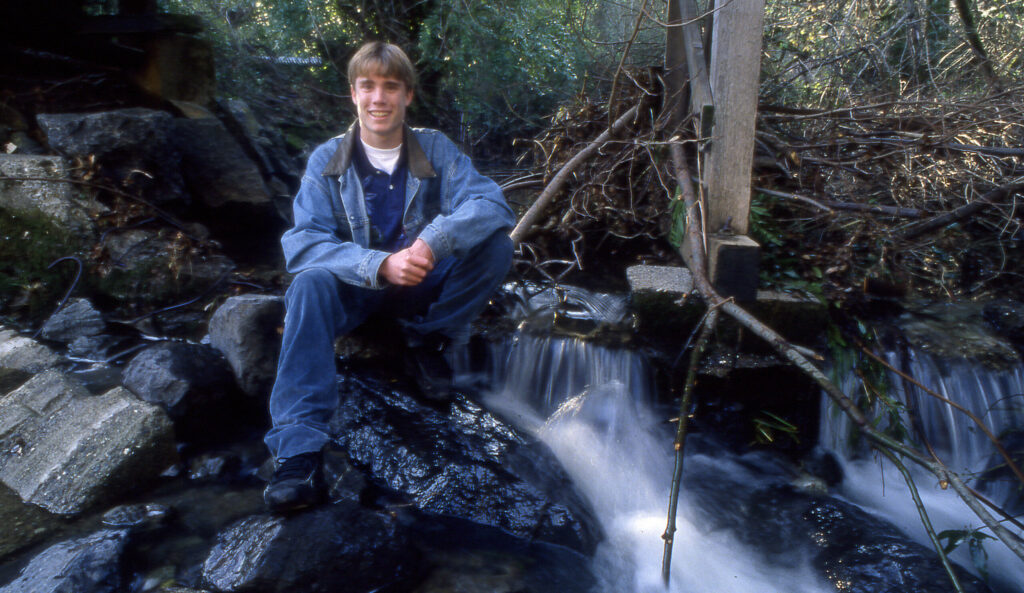
Sonoma County Democratic Party Chairperson Pat Sabo has known McGuire for 30 years, since she was his eighth grade teacher. In that classroom, he was “incredibly hyperactive,” Sabo says. Sometimes she sent him to take a lap around the track, hoping he’d burn off enough restlessness to come back inside and sit still. That energy — errant at the time — is the undercurrent of his political life now, fueling a work ethic famed among colleagues in the Capitol, who refer to him in interviews, nearly without fail, as “the Energizer Bunny.”
He’s hitched that work ethic to his political aspirations for more than two decades with unbroken success. As the youngest person to run and win a seat on the Healdsburg school board in 1998, McGuire may have met every voter in town, Sabo says. Still, it was hard to shake the image of a former class clown. “He’s doing this as a joke,” she thought at the time.
She likely wasn’t the only one. At his first board meeting, McGuire recalls, one of his new colleagues patted the young man on the head. But he quickly convinced Sabo he was far from joking about politics. At the time, she was president of the local teachers union and locked in a tough contract negotiation with the school district. McGuire spent considerable time meeting with her and other teachers, seeking to learn their perspective.
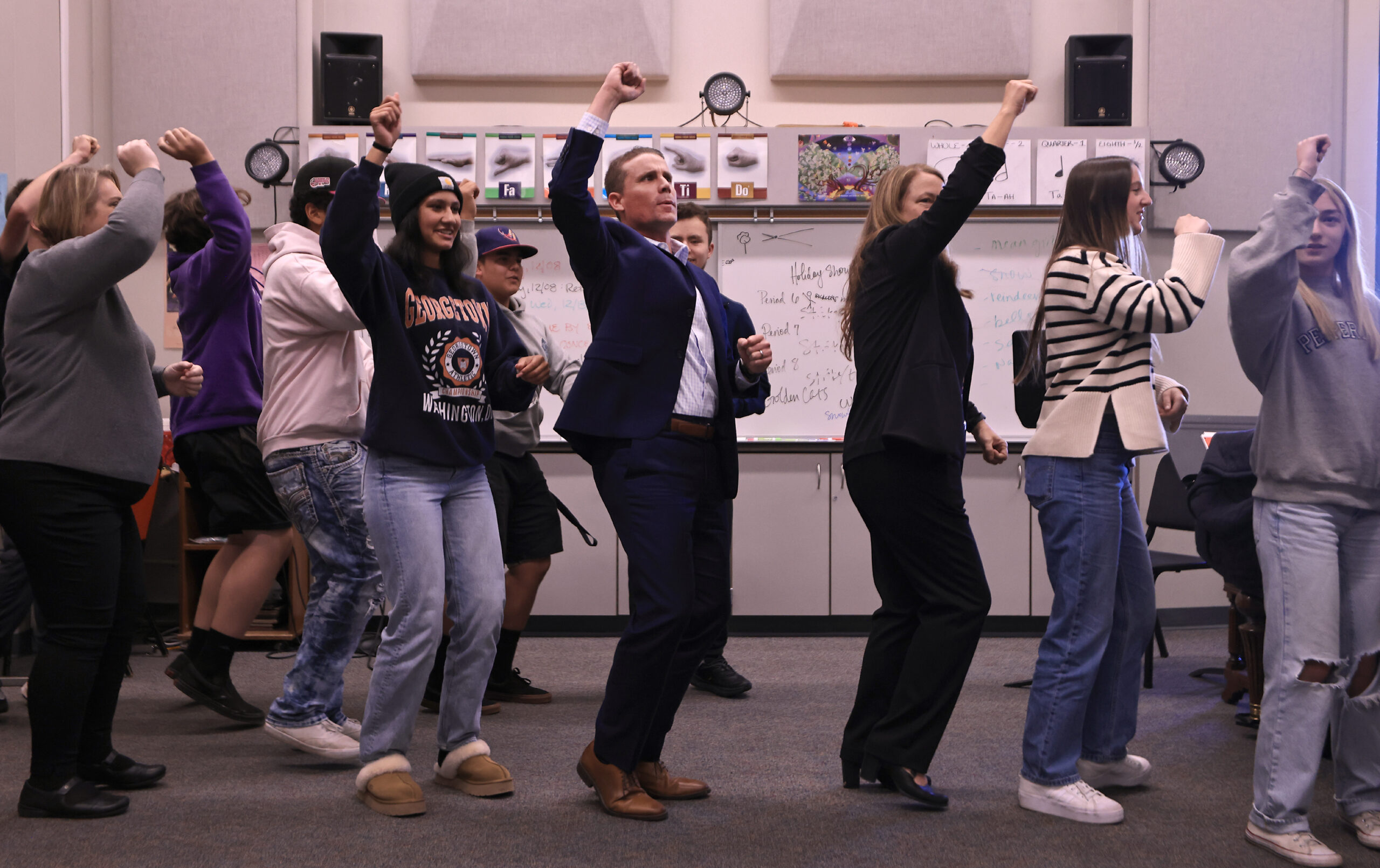
After Sabo’s retirement, and after McGuire’s six years on the school board, six years on the Healdsburg City Council, and four years on the Sonoma County Board of Supervisors, she worked with him on his first Senate campaign, in 2014. He then asked her to join his staff in Sacramento, working through his first term. That term was shadowed by some of the worst wildfires to ever hit California, and McGuire’s district experienced many of them: the 2015 Valley Fire in Lake County, the 2017 North Bay firestorm, and the 2018 Mendocino Complex Fire.
McGuire was a whirlwind of action after the firestorm. Working off a model he first used after the Valley Fire, he partnered with Santa Rosa-based Redwood Credit Union and The Press Democrat to raise $32 million for 2017 fire victims. He’s spearheaded fights to hold local governments, telecom companies, and utilities accountable for their roles in the disaster.
Surrounding him then and through the ensuing two terms has been an evolving but fiercely loyal staff, several of them older women who exhibit a motherly pride in their hard-charging boss. Donna Zapata, who works in his district office in Santa Rosa and is a former head of the county’s Hispanic Chamber of Commerce, is one of them. “The mother in me, the grandmother in me, I’m very proud of him,” she says. In her view, McGuire’s hard work and pragmatism has improved Northern California and will go on to serve the entire state. “He helps a lot of people,” she says. “It ripples out.”
Stepping into huge shoes
McGuire’s predecessor in the Senate’s top job, Toni Atkins, is an ally and public champion of his who appointed him Senate majority leader in early 2022. Atkins wrote at the time that McGuire was stepping into the “huge shoes” of the outgoing majority leader. “But knowing Sen. McGuire and his energy, he will work to fill them, shine them, put in new laces, and resole them, all within two and a half minutes,” Atkins said.
His fellow North Bay representatives say that reputation is well-earned. “There is nobody harder working in either chamber than Mike McGuire, and that’s not to put anybody else down, but he is nonstop,” says state Sen. Bill Dodd, D-Napa. “It means getting up real early and starting his day and then I’ve been on calls with him at 9, 10, 11 at night. He’s not going to stop until the job is done.”
McGuire’s standing as a workhorse legislator, consensus builder, and as someone who keeps his word earned him the job. “He made no commitments — none — to get this vote,” says Dodd. “He stood on his personality, his record of accomplishments supporting (Atkins) and his position as the majority leader. There was just a lot of trust there.”
“ Look, I have always been the underdog. And I like it… Again, I don’t come from a political family. We don’t have any damn money. And it’s all about grit, being scrappy and working hard.”
McGuire shrugs off any suggestion he’s an exception at the Capitol. Instead, he ticks off the importance of the work, how much needs to be done, and the values handed down by his grandmother. McGuire describes her as a woman in the male-dominated world of agriculture, “a hard-nosed prune rancher and grape grower,” who worked, worked, and worked some more for what she achieved. “Every time my feet hit the ground in the morning, I think about my grandma,” and the lessons she imparted, he says. “Work hard. Work together. Don’t take no for an answer.”
McGuire got his first full-time job as a junior in high school. Until he became a county supervisor, which is a paid position, he had stints as a radio host and a TV news producer. “It’s no different than the majority of Californians,” he explains. “Many have two or three jobs just to be able to pay the bills. And that’s what inspires me now is to provide a better life for those who are struggling, and to be able to provide a voice to those who don’t have one and who are underrepresented in this state… I think when you see struggle as a kid, you want to be able to change that as an adult.
McGuire entered the school board race, he told the students in Ukiah, after growing frustrated with the state of his school. There were buckets around his classroom to catch water leaking through the roofs and students had to cross the campus to use the bathroom.
“I feel really frustrated when those who represent us as leaders kinda don’t listen to those who are impacted by their decisions. Am I right?” he says to a silent room. (No party people this time.)
“And I think that is a growing frustration, whether it is a school board or the president of the United States,” he adds.
Energizer bunny
McGuire keeps a schedule that would shatter most.
“Working with people gives me energy,” he says.
Watch McGuire dance with high school students, work a room at a ribbon cutting, or engage in his side gig as charity auctioneer — a whooping, pointing, shouting performance that is legendary along the North Coast — and the symbiosis is palpable. When pushing the wheelbarrow and plucking the pear, McGuire is feeding off the spontaneity and joy he sparked for the students.
One morning in early November, just after 10 a.m., McGuire is seated at the corner of a table in a meeting room in Santa Rosa. His day started with an 8 a.m. fundraiser for a long-awaited public library in Roseland. Now he is meeting with 17 mayors and council members from Sonoma County’s nine cities. The agenda is extensive and complex. Next, he and many of the other officials rush to Petaluma for a groundbreaking ceremony at the new station for the Sonoma-Marin Area Rail Transit — complete with the requisite golden shovels. By 5 p.m., he is back in auctioneer mode, cheering on donors at a fundraiser for a new charity to support public schools.
But at the 10 a.m. meeting, out of the public eye and in the company of fellow elected officials, McGuire is more listener than showman. He faces a wave of concerns about rampant homeless encampments, increasing episodes of hateful speech dominating public comment periods of local government meetings, and caps on leaders’ ability to raise revenues through sales taxes.
The central topic of discussion, however, is Pacific Gas and Electric Co., a perennial foe for North Coast politicians after a decade-long string of utility-sparked wildfires killed more than 100 people and destroyed thousands of homes. McGuire has long cast himself as a foil to PG&E, which he blames for putting shareholder profits over safety in the run-up to years of catastrophic wildfires linked to its aging electrical grid. The local municipal leaders at the meeting are worried the utility’s pace of electrifying new housing developments isn’t keeping up with the rapid pace of building, among a litany of other complaints. As Senate president, McGuire will have a much bigger cudgel.
“You’re going to see increased scrutiny on them,” McGuire promises the group of lawmakers. “We need to remind them that there are consequences for inaction.”
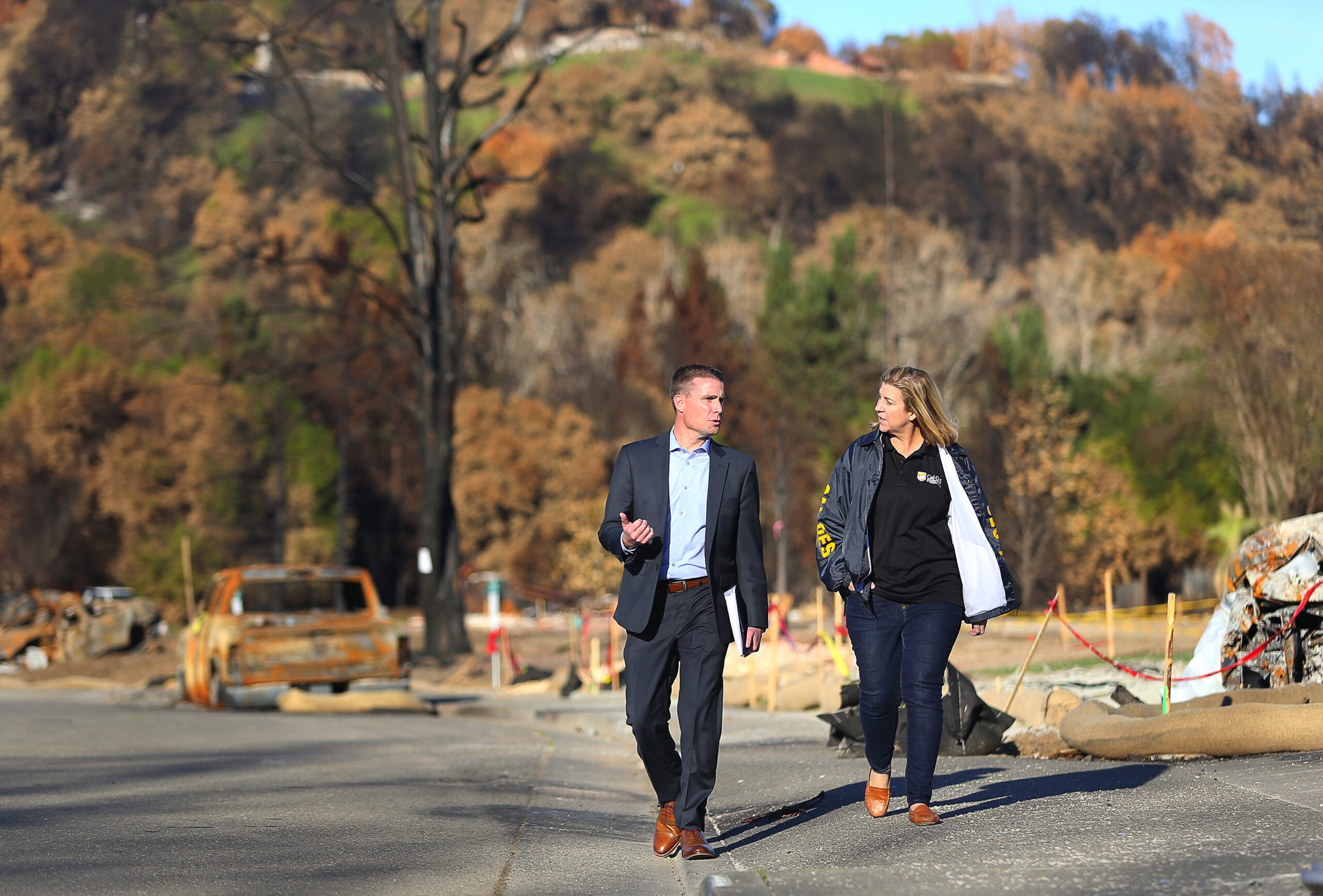
Once he’s Senate president, though, a dominant player like PG&E, the nation’s largest electric utility, will need and expect to be heard. And each of the 40 senators he leads are duly elected and hold their own agenda. Caucus leaders govern by reputation, cajoling, and consensus building. They cannot dictate support, and McGuire is in charge of only the Senate. The Assembly and governor are another matter.
“It’s a three-headed monster there,” says Steve Maviglio, a longtime statehouse operative who today works as a political consultant. In the power halls of Sacramento McGuire is known as pragmatic, press-savvy, and careful. “He’s got a very healthy reputation of being able to get things done,” Maviglio says. “The most overlooked role of a Senate leader is cat herding. You’re dealing with 40 people with the enormous personalities you need to be in politics in the first place. To get everybody on the same page and rowing in the same direction is no easy feat.”
At this point, it’s still impossible to know what will define the coming two years of legislating. There is always the chance of fresh crisis, whether real or political. McGuire is telling people he’s focused on results for voters, not political drama or infighting. “I’m not going to be big on political debates,” he says. “The culture war issues are a distraction and it’s a rabbit hole I will not go down. We are going to focus on policies that impact the greater good of Californians.”
Political patchwork
The nearly 1 million constituents of the 2nd Senate District where McGuire has made his mark over the past decade are now about to share him with the state. The district encompasses 10,000 square miles from the Golden Gate Bridge to the Oregon border, rimmed by a rugged coast. Much of the territory is mountainous and sparsely populated. It includes one of the wealthiest counties in the nation, Marin, and three of the poorest counties in California—Del Norte, Lake, and Trinity. It contains more than a third of the state’s 840 miles of coastline, five national forests, and a complex patchwork of rural, urban, small town, and agricultural zones.
And it is as diverse politically as it is geographically.
Del Norte and Trinity counties both went for Donald Trump in the 2020 election, with Del Norte voting Republican by more than 15 percentage points. To the south in Marin County, however, more than 82% of voters went for Biden, along with close to 75% of voters in Sonoma County. Northern California counties are struggling, and have been for decades. Humboldt, Lake, Mendocino, Trinity, and Del Norte counties may not be making national news like Sacramento, San Francisco, or Los Angeles, but they are statistically more deeply plagued by social ills, McGuire says.
On that front he has tough words for his own party. Democrats have unilateral control in Sacramento and have not lost an election for state office in 18 years. “If you look per capita at the highest rates of poverty, opioid addiction, homelessness, it’s not in urban centers,” he says. “It’s in communities like Eureka and Crescent City, and Weaverville and Hayfork, Ukiah and Clear Lake.”
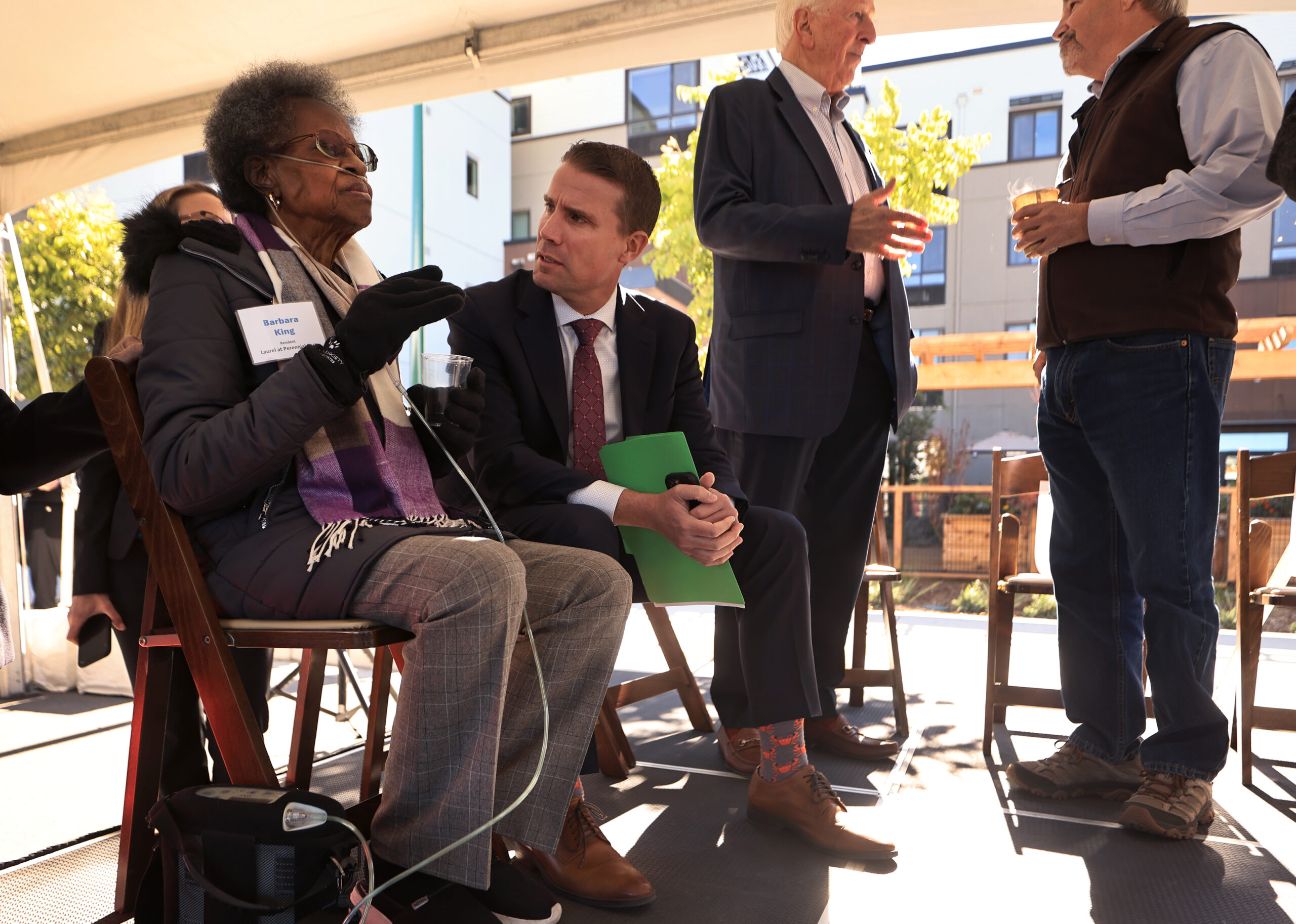
McGuire, like other Democratic politicians that represent the area — Assemblyman Jim Wood of Healdsburg, or Congressman Jared Huffman of San Rafael — has not come out ahead in those areas in general elections.
Like many economists, McGuire sees a connection between despairing statistics and the election results up north. “One of the reasons why I believe that Donald Trump was president is because Democrats have forgotten about rural California,” he says. “And we’ve forgotten about rural America.”
Wood, who announced this year will be his last in the Legislature, thinks McGuire’s leadership will help more of those places. His district and McGuire’s nearly mirror each other. “From my perspective, it will be very good for the district,” Wood says. “I would think that whatever I want I’m going to be able to get. Mike’s responsibility will be to the entire state of California. Will he look at rural California a little bit more? Yes, I believe he will.”
Under its canopy of redwood trees, the far northern part of the state is in many ways a microcosm of the nation. McGuire makes laps through that part of the district relentlessly.
Want to know just how relentless? Make a call up to the Trinity Alps Unified School District in Weaverville, a five-hour drive north of Santa Rosa, and ask Superintendent Jaime Green about Mike McGuire.
“The best politician in all the United States of America, that guy?” he’ll say. Other politicians that can help his district, and do, are also very good people, he adds diplomatically.
But McGuire’s special place in the district’s heart is set in concrete. In 2018, school staff discovered dangerous levels of mold at the high school and junior high school. Overnight, Green says, they had to shutter the buildings entirely. In the impoverished county, a school bond was a nonstarter. District officials were looking at busing students to a school three hours away. Desperate, they contacted McGuire.
“We called and he came running,” Green said. McGuire secured state funding for temporary housing and eventually, to replace the mold. “He walked with us from the beginning all the way until the end.” Three years later, Green said, the district had finished building two modern, “absolutely gorgeous” new campuses.
Green is a registered Republican. McGuire has “damn near made me a Democrat,” he says. “He’s got me rolling over. My wife is like, ‘What’s wrong with you?’” It will take state investment for Trinity County to improve, Green says. And so it’s no surprise that McGuire, who delivered for the school district, has won him over. They share the same view on public schooling. “We are their shot, bud,” Green says. “Public education in an impoverished area — we are what they have. I think that’s what Mr. McGuire recognizes, and that’s why he helps us.”
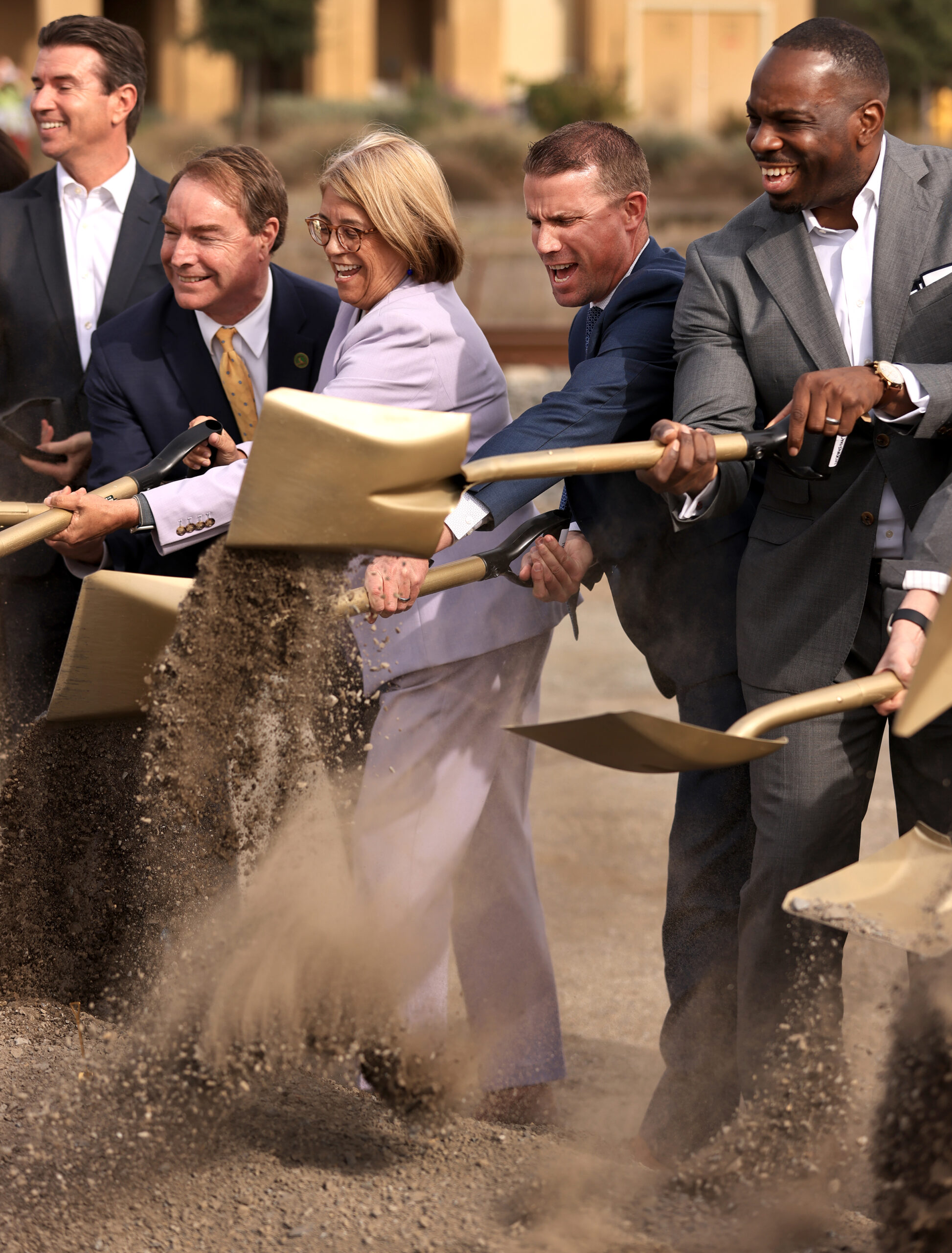
What lies ahead
The office of State Superintendent of Public Instruction comes up for election in 2026, just as McGuire terms out of the Legislature. So does state insurance commissioner. In 2023, McGuire opened a campaign committee for the latter office. But despite the glaring title “McGuire for Insurance Commissioner 2026,” the political cognoscenti say that at this early stage, the campaign is likely mostly a way to store political donations.
So far, it’s hardly worth asking McGuire himself.
“There’s an eternity between now and the 2026 election cycle and my priority is to work my tail off tackling our toughest challenges here in Northern California and helping to lead the state Senate as Majority Leader,“ McGuire said in a statement to The Press Democrat in August, when the newspaper reported on his new campaign committee. In September, he gave nearly the same answer to a different reporter after he was named incoming Senate president: “There is an eternity between now and the 2026 election cycle. My priority between now and then is to work my tail off…”
Runs for statewide office are daunting prospects for politicians from north of the Golden Gate Bridge. There is no massive urban population center to anchor a voting bloc. Elections are most often decided by voters in Los Angeles and the Bay Area, neither of which offers McGuire a firm base.
Leading the Senate will help him build name recognition, but his path to becoming a statewide figure in two short years is narrow, some observers say. “Being a leader of the Legislature really doesn’t give you a statewide platform or recognition,” says Maviglio, the lobbyist. “You can make your mark,” but, he says, “it’s pretty limited.”
But McGuire has been running hard his whole life. Late last year, his several trips to Southern California included meetings with Los Angeles Mayor Karen Bass, the L.A. city council president, Los Angeles County supervisors, and the head of the Los Angeles Black Worker Center. Connecting with big-city leaders has been illuminating and head spinning. “I don’t blame them, but they think, ‘What does someone from Healdsburg know about a city of 10 million?’” McGuire says.
“I approach this as I’ve always…” He stops for a moment, then shifts gears. “Look, I have always been the underdog. And I like it… And again, I don’t come from a political family. We don’t have any damn money. And it’s all about grit, being scrappy, and working hard.”
He and Erika were childhood friends. They married in 2010. Now both in their 40s, they struggled for years to have a child. Their son, Connor, turns three this year. “Having a kid has changed my life,” McGuire says, and then he chokes up and takes a long, long pause. “I don’t take this gift lightly.”
Of his son he says, “The damn kid doesn’t sleep. And he is opinionated as all get-out. He has energy — he is bouncing off the walls.”
Go figure.










